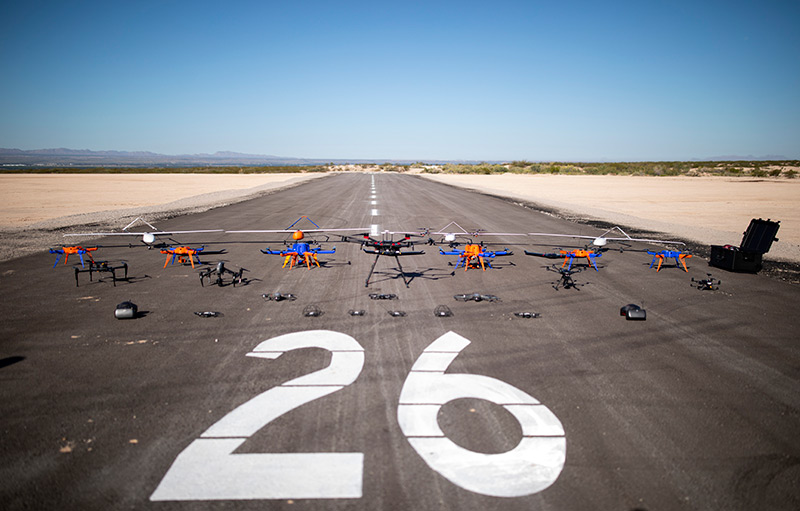UTEP Drone Program Receives FAA Distinction
Last Updated on November 04, 2019 at 12:00 AM
Originally published November 04, 2019
By Darlene Barajas
UTEP Communications
During a week devoted to educating the nation about drone safety, The University of Texas at El Paso's unmanned aerial systems (UAS) program marks its ascent in national stature with a new distinction from the Federal Aviation Administration (FAA).

The drone program at UTEP’s NASA MIRO Center for Space Exploration and Technology Research (cSETR) enters the FAA’s inaugural National Drone Safety Awareness Week — which takes place Nov. 4-10, 2019 — with a newly acquired Part 107.39 waiver. UTEP is the first university in Texas to receive this designation, which eases restrictions in research flights conducted by cSETR. The only other U.S. university systems to possess this waiver are Stanford University and the Regents of the University of California.
To mark National Drone Safety Awareness Week, UTEP will engage in public outreach with the City of El Paso and El Paso International Airport to improve safety by educating the public, area businesses and area schools on the federal regulations that dictate where drone users can legally fly throughout the El Paso area.
“Advanced research in autonomous unmanned aviation is a critical future research area for our county,” said Ahsan Choudhuri, Ph.D., UTEP associate vice president for strategic initiatives and cSETR’s founding director. “We continue to focus on advancing UTEP and El Paso’s leadership in this foundational engineering field.”
The FAA feat is part of a slew of accomplishments this year for the burgeoning drone program, which was initiated at UTEP in January 2018. The program has a fleet of 35 drones. Many of these were designed, built and flight tested by UTEP undergraduate, master’s and doctoral students. These drones are some of the first in the country to be completely 3D printed. Newly designed drones match performance capabilities of the most advanced commercial drones, and are being produced for some area federal agencies.
Michael McGee, Ph.D., senior research associate for cSETR, has led the program since its inception. McGee said the brilliance and professionalism of students has created exciting momentum at UTEP. He said that 100% of students who were employed with cSETR’s drone program as undergraduates have stayed for their master’s or doctoral studies. McGee added that their research is producing operational capability not found anywhere else in the country. Before gaining its recent waiver, the program has previously been awarded FAA exemptions to fly at night and in controlled airspace.
As the program expands, the University realized it needed a purpose-built airport for unmanned testing and training operations. To that end, UTEP, El Paso County and community partners recently finished construction of a runway at Test Site Bravo near Tornillo on the county’s eastern fringe. Future upgrades this year will include the installation of an advanced radar and hangars for the aircraft.
“We developed this program to position UTEP as a national leader in this critical industry,” McGee said. “We continue to not only produce industry leading research but are training our country’s future engineering leadership in unmanned aviation.”
McGee said cSETR’s well-developed standard operating procedures and safety management systems were key in acquiring the campus’ new FAA designation.
“This is one of the many big steps the program has achieved this year, and opens up unique new areas of research and operations for our students and faculty,” McGee said.